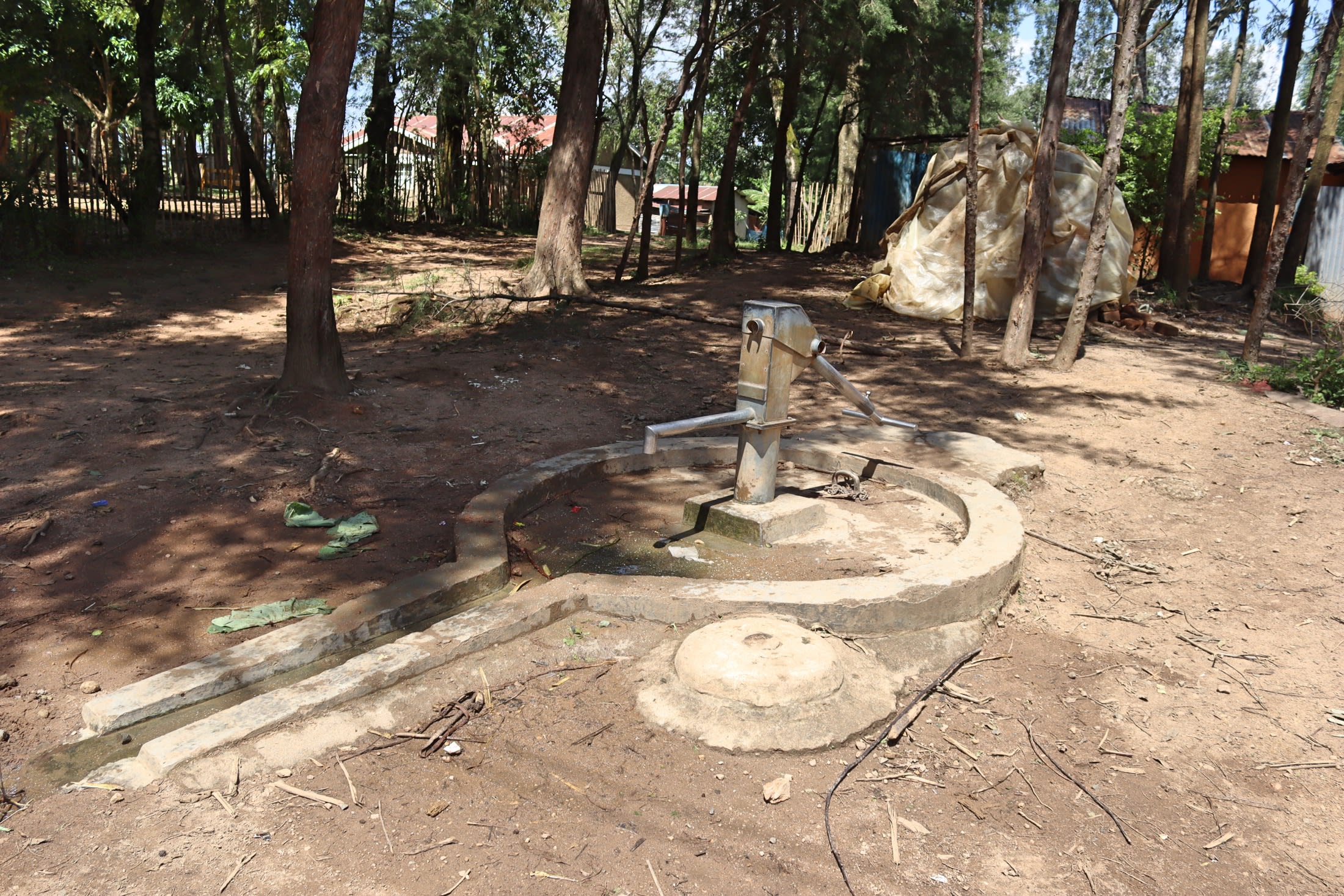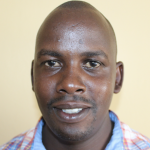With 700 students and 21 staff at Ebuchira Primary School, you'd think they would have a water source on the school campus. And they used to, but unfortunately, the well broke several years back and has never been fixed.

Since then, the school has been sharing a borehole well that sits across a busy road with the community members. And although the well yields clean water, the water itself isn't the main problem. Students wait in long lines for water, quarreling and fighting with community members who say they have the right to fetch water first.
There's even a man who lives next to the shared well with mental health issues who frightens the students when they come to fetch water. Our field officer reported that he waves a machete at them, and even chases them off at times. But without a local police force or standardized mental health services in Kenya, the best school staff members can do is try to keep an eye on the kids when they cross the road to the well.
"The water situation here affects us as teaching staff much because it is very involving," said teacher Sammy Iuvuka (shown below).
"Students have to be supervised closely for them to do what is expected from them. If not so, they will scramble for water which may lead to fierce fights among themselves. Also, you must watch over them as they cross the road to the water point."

"Young students like me have been having a lot of challenges," said 13-year-old Brilliant C. (shown below). "We are not given ample time to fetch water, and moreso, when it comes to scrambling for the first position, we are at a disadvantage because we don't have the energy to withstand the pressure from our elder colleagues. So we are left with no option but to wait until [the] queues reduce for us to fetch water. With that, we end up wasting much time."

Because water is such a precious resource, it makes sense that people would be impatient to collect it in order to address other essential tasks requiring water. But struggling for water every day saps the students' morale and will to learn.

The water crisis also drains the school's finances, because they have been forced to pay for repairs when the well pump frequently breaks down. This means the school can't afford to fix the crumbling, overfull latrines. The latrine situation compounds the school's lack of proper hygiene and sanitation measures. Without a reliable source of water, the classrooms and latrines can't be maintained as they should. This contributes to illnesses among the school's students — yet another strike against the students' performance and health.
Ebuchira Primary School needs its own source of water on school grounds. With a reliable source of water close by, students will no longer have to fight for water against their elders or contend with other dangers outside. With time and water, the students' health and hygiene should improve, impacting their happiness and their futures for years to come.
What We Can Do:
Rain Tank
A 75,000-liter rainwater catchment tank will help alleviate the water crisis at this school. The school will help collect the needed construction materials such as sand, bricks, rocks, and water for mixing cement. We will complement their materials by providing an expert team of artisans, tools, hardware, and the guttering system. Once finished, this tank will begin catching rainfall that will be used by the school’s students and staff for drinking, handwashing, cooking, cleaning, and much more.
We and the school strongly believe that all of these components will work together to improve standards at this school, which will lead to better student academic performance and help to unlock the potential for these students to live better, healthier lives.
Handwashing Stations
The student health club will oversee the two new handwashing stations we will provide, and make sure they are kept clean and in working condition. The club leaders will fill the handwashing stations with water daily and make sure they are always supplied with a cleaning agent such as soap or ash.
VIP Latrines
Two triple-door latrine blocks will be constructed with local materials that the school will help gather—one block for girls and one for boys. All of these new latrines will have cement floors that are designed to be easy to use and clean. And with a rain tank right on school property, there should be enough water to keep them clean.
Training on Health, Hygiene, COVID-19, and More
We will hold a one-day intensive training session with students and teachers. This training will cover a wide range of topics including: COVID-19 symptoms, transmission routes, and prevention; personal and environmental hygiene; and the operation and maintenance of the rain tank, latrines, and handwashing stations. There will be a special emphasis on handwashing.
Our team of facilitators will use a variety of methods to train, including participatory hygiene and sanitation transformation, and asset-based community development. We will initiate a student health club, which will prepare students to lead other pupils into healthy habits at school and at home. We will also lead lectures, group discussions, and provide illustrative handouts to teach health topics and ways to promote good hygiene practices within the school, like handwashing and water treatment. We will then conduct a series of follow-up trainings before transitioning to our regularly scheduled support visits throughout the year.

 Rainwater Catchment
Rainwater Catchment
 Rehabilitation Project
Rehabilitation Project


















